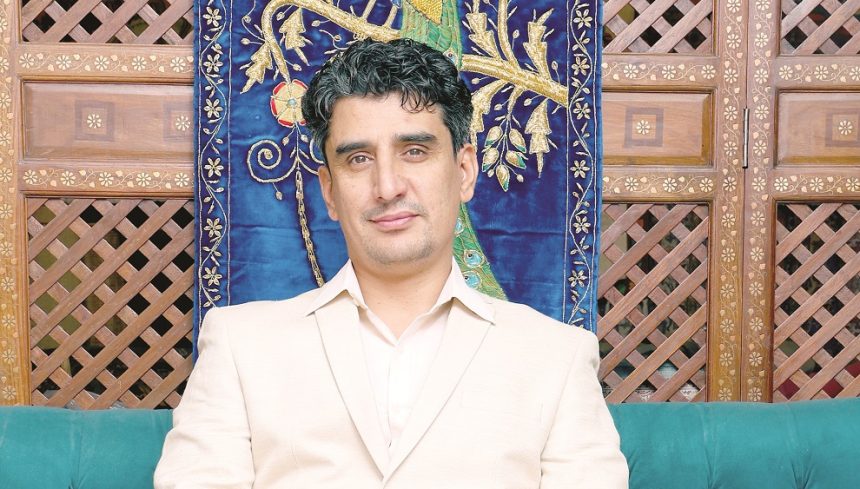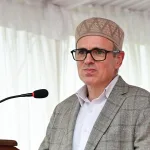In the quiet lanes of Srinagar, two brothers are working hard to bring back the lost glory of Kashmir’s famous carpets and pashmina. Mir Nawaz, 40, and his brother Mir Waseem are leading the revival of Miras Carpet Industries, a family business that had once faded away. Starting with a small loan of ₹50,000 in 2005, they are now creating jobs, training young artisans, and taking Kashmiri handcrafts to big cities and global markets.
The company’s journey of revival began in 2005, when the brothers took their first loan of just ₹50,000. “It was a small step, but it meant everything to us. We had to protect what our ancestors had built,”says Nawaz. That first loan became the seed of a long and challenging journey to rebuild the craft, restore pride among artisans, and bring Kashmiri carpets and pashmina back into the global spotlight.
The duo’s approach to revival has been rooted in tradition. “We decided early on that we wouldn’t compromise on authenticity,” Nawaz explains. “Our carpets are hand-knotted, our pashmina is hand-woven, and we use techniques passed down through generations,” he added.
They started by upskilling artisans. Today, Miras Carpet Industries has trained and engaged over 250 local craftsmen, including many unemployed youth. They also set up 36 Pashmina looms and more than 20 weaving units, all located in Srinagar and South Kashmir, where skilled hands and raw materials like wool and pashmina are easily available.
“Our focus has always been on building a strong artisan community. This is not just about business—it is about reviving an entire ecosystem,” Nawaz said.
Understanding that heritage alone won’t sell in today’s market, the brothers worked on rebranding “Miras” as a luxury label. They opened experience stores in major cities like Delhi, Mumbai, and Bangalore. Recently, they also launched a store in the USA, expanding their global footprint and bringing Kashmiri craftsmanship to a new international audience.
“We want people to feel the story behind each carpet, each shawl,” Nawaz says. “When they visit our store, they are not just buying a product—they are connecting with history.”
In addition, the company has showcased its work at international expos, collaborated with designers, and had its creations featured in luxury hotels. These efforts are not just about sales but also about building global respect for Kashmiri craftsmanship.
Despite their efforts, the journey hasn’t been easy. Nawaz is honest about the challenges. “We haven’t received significant financial help from the government,” he admits. “Most of the revival has been self-funded through loans and reinvested profits.”
Still, he remains hopeful. The company has started reaching out to government departments like the Handicrafts & Handloom Department of J&K, the MSME Ministry, and the Khadi and Village Industries Commission (KVIC) for support. They are also open to working with private companies through CSR programs, especially those interested in heritage and rural upliftment.
While Miras is seeing a revival, the broader industry is not as lucky. “The overall carpet and pashmina sector is in decline,” Nawaz observes. He blames a mix of issues: machine-made imitations, poor artisan wages, and lack of marketing innovation.
“Many young people don’t see a future in this craft,” he explains. “They are moving to other jobs, which is a big loss. If we don’t act now, we may lose this heritage forever.”
Another major issue is the absence of modern retail channels and high logistics costs, especially for products coming out of Kashmir. “It takes a lot to get our goods to metro cities or global markets,” he adds.
To turn things around, Nawaz believes immediate steps are needed—like subsidized loans, artisan health insurance, and support for e-commerce platforms that can connect craftsmen to global buyers.
But for lasting impact, long-term measures must also be put in place. He proposes Craft Heritage Zones—integrated spaces for training, production, and export—along with design labs supported by institutions like NIFT. He also stresses the need to enforce GI (Geographical Indication) tags to protect authentic Kashmiri crafts from imitations.
“Imagine if Kashmir became a global craft tourism hub,” Nawaz suggests. “People could visit, learn, buy, and experience the culture firsthand.”
One of the most heartening parts of the Miras story is how it has helped local people. “We’ve created jobs not just for weavers, but also for dyers, finishers, and designers,” Nawaz shares. “We also run training programs for young people, especially women.”
These programs teach traditional skills as well as entrepreneurship, helping women start their own looms and small businesses. “When people can earn and stay in their own region, it brings pride and stability to the whole community,” he said.
As Miras Carpet Industries continues to grow, Nawaz hopes the government and private sector will recognize the value of such efforts. “We’re doing our part. But if we’re joined by others—if we have the right support—the impact can be 10 times bigger,” he says.
In many ways, the story of Miras is also the story of Kashmir’s rich but endangered heritage. It’s about two brothers, a legacy under threat, and the power of persistence. More importantly, it is about a future that blends tradition with innovation—where the past doesn’t fade, but flourishes again.
“We are not just reviving a company,” Nawaz says quietly. Adding, “We are bringing back a piece of Kashmir.”








